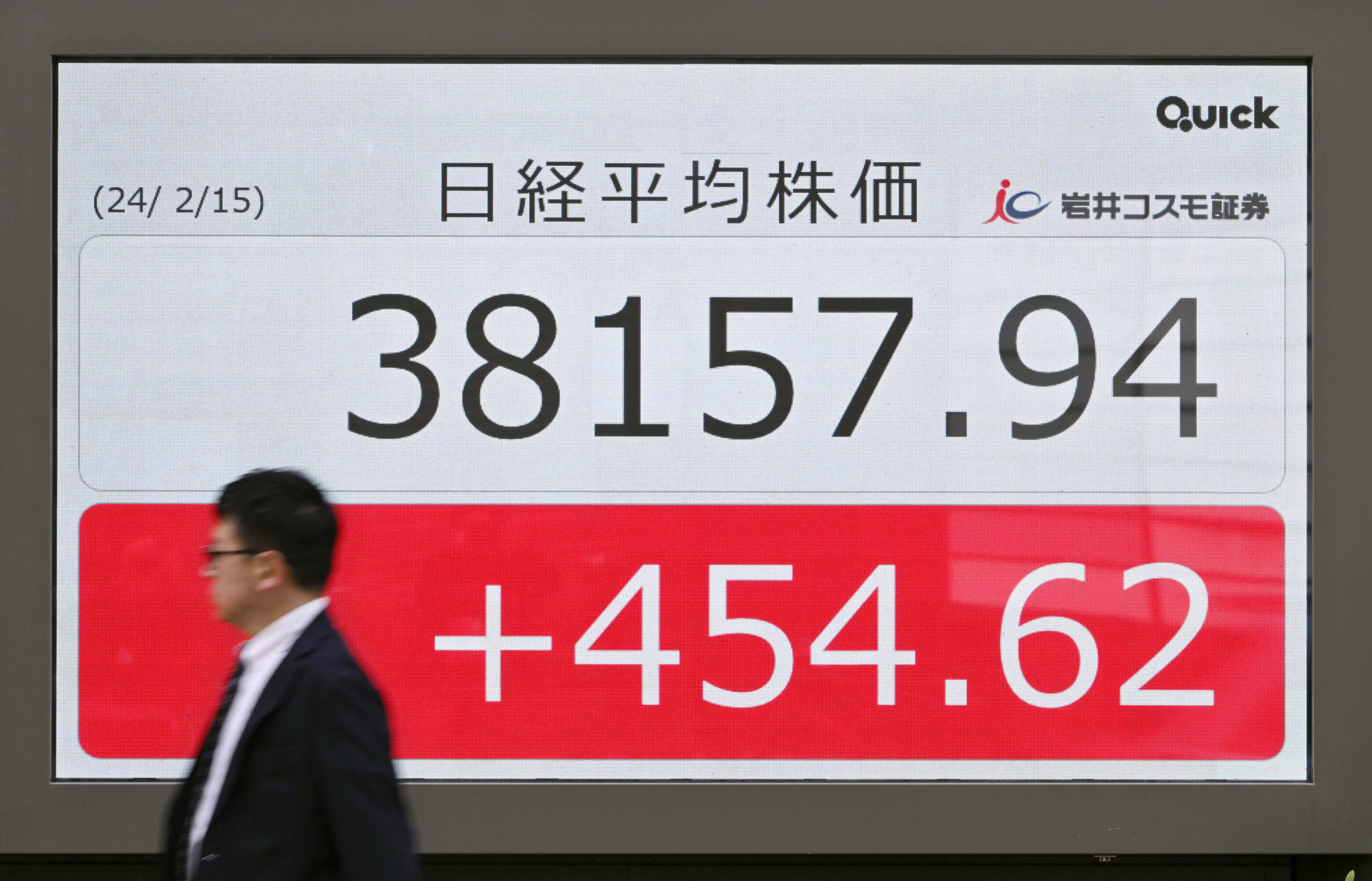
Is Japan’s economy well and truly ‘back’? Not so fast
- The country’s sizzling stock market and high-profile push for governance reforms are spurring optimism that the economy is finally turning around
- However, investors would be well advised to look more closely at its economic fundamentals
Is Japan “back” as a rising star in the economic firmament even as China’s light appears to be dimming? Or are we being dazzled by the blaze of attention being directed at the apparent Japanese conversion to Western (specifically US)-style capitalism?
Thanks to capital flow deregulation, a vast amount of money is washing around the world following monetary expansion in the wake of the global financial crisis and then the Covid-19 pandemic. Those funds are fleet-footed and fickle. Much of the money has alighted on Japan because of perceived problems in China and because Japan is on what some people regard as the right side of a debate about the relative merits of democracy versus autocracy.
It also coincides with the fact that, for a number of years, Japanese prime ministers, including current leader Fumio Kishida, have been nudging the country towards becoming a fully fledged market economy.
Japan boosters, not least those in the public-private promotion body known as FinCity.Tokyo, are making bold claims that Japan is not only “back” from its long, post bubble-economy trauma but also that it is moving into a new era of market capitalism.
Some rather extravagant claims are being made, in places from New York and London to Tokyo itself, and these are transforming Japan’s international image, at least in a superficial sense. As David Semaya, executive chairman and representative director of Sumitomo Mitsui Trust Asset Management, says, international investors now have “an unbelievable interest” in Japanese stocks, while veteran Japan analyst Jesper Koll notes that “Japan is at the forefront of every global investor’s thinking”.

There is no doubt that Japan is undergoing real reform in areas ranging from corporate governance and asset management to innovation and the start-up culture. But whether this adds up to a fundamental economic transformation is questionable.
The flow of international portfolio capital can produce an image of growth and economic prosperity in any country to which such funds are directed, almost regardless of fundamentals.
Richard Katz, author of the recently published The Contest for Japan’s Economic Future, argues that the fact Japanese stock prices are once again flying high “does not mean that Japan is back”. Productivity in Japan has fallen behind that in other advanced economies and there is a need for a “better balance in the country’s corporate structure between giants and entrepreneurs with fresh ideas”, Katz said at a recent talk at the Foreign Correspondents’ Club of Japan.
Japan has the lowest share of entrepreneurs among some 25 leading countries, said Katz, a senior fellow at the Carnegie Council for Ethics in International Affairs. More damningly, perhaps, he added that corporate Japan is “stuck in the analogue era”, rather than graduating to the digital maturity others have achieved.
The image of Japan as a nation bursting with ideas and renewed economic vigour is hardly supported by the International Monetary Fund’s latest so-called Article 1V consultation report on the Japanese economy, published on February 9, which predicts that GDP growth will slow to just 1 per cent in 2024 compared to 1.9 per cent last year.
The main downside risks, it suggests, are “continued low real household income growth if inflation continues to outpace wage growth, more acute labour shortages that could constrain activity, and a return to a zero-inflation environment”. Japan’s declining population is also a factor which threatens national output and economic vitality.


Japan can almost certainly benefit from the intense efforts being made to improve the country’s financial asset management skills, to increase corporate Japan’s effective deployment of capital resources, and to raise public awareness of the need for better financial returns on the nation’s savings. But there seems to be some superficiality in the approach to such issues.
The size of Japan’s household savings is legendary at around US$13 trillion. But a large part of those savings are invested in Japanese government bonds, either directly or via banks, and this explains why Japan is able to sustain very high levels of government debt without having to resort to foreign borrowing.
It is a source of national strength that can only be sapped by turning Japanese savers into a nation of those seeking high financial rewards overseas, rather than supporting the government bond market.
The essential message in all this is that money isn’t everything. Japan would be well advised to resist a superficial transformation that brings risks without commensurate benefits to the broader economy. By opening up its capital markets and aggressively soliciting foreign investment, Japan risks increased volatility in stock and currency markets, and rapid inflows that may distort asset values and lead to another bubble.
If Tokyo courts another financial disaster, China, among others, might have the last laugh.
Anthony Rowley is a veteran journalist specialising in Asian economic and financial affairs

